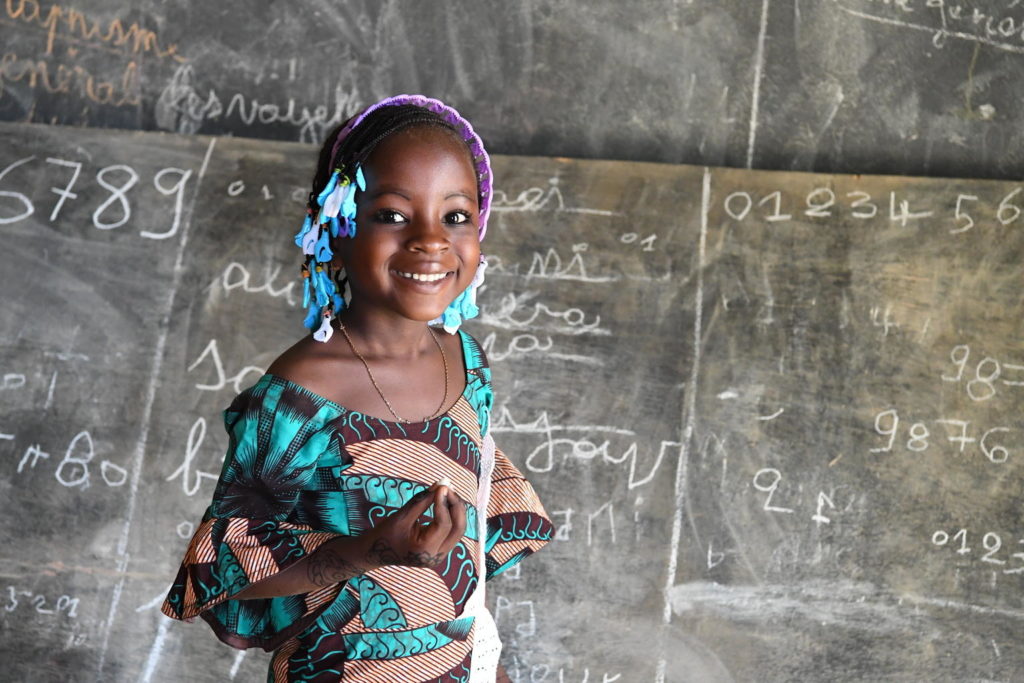2.9 billion people still do not have access to the Internet.
As school internet connectivity and education quality are correlated, tackling this lack of connectivity helps in achieving SDG 4 (Quality Education). Connectivity is a key driver of access to information, opportunity, and choice for young people, and of economic development and community wellbeing.
The lack of connectivity is attributable to both the coverage gap (affecting 7% of individuals worldwide) and the usage gap (affecting 40% of individuals worldwide). This digital divide has become even wider during the COVID-19 pandemic, with not only students, but also wider communities being affected. Specific causes of these gaps are country-dependent, and sustainable business models to connect schools are essential to bridge them.
Boston Consulting Group (BCG) as ITU’s Knowledge Partner is supporting Giga to help further develop school connectivity operating models, based on different country typologies, forming a basis for helping countries achieve universal connectivity. The operating models include how connectivity is configured, how it operates, and how the business models would work for the network so that it is sustainable.
Meaningful School Connectivity: An assessment of sustainable business models
The scope of this report focuses on sustainable business models for infrastructure to reach school connectivity in emerging markets. A business model is defined as an interlinkage of technology, operating model, funding structure, and cost structure that define the overall approach to the infrastructure deployment; a sustainable business model is one that can maintain itself indefinitely and is not dependent upon external (not-for-profit) grants and donations.
BCG and Giga conducted over 40 expert interviews and leveraged a variety of secondary sources to create this report. It includes key learnings from 7 country case studies, touching on the following topics for each country: Country & School Overview; Connectivity Status & Developments; and Service Provider Landscape.
The report recommends 6 ways to tackle low school connectivity in a sustainable manner:
- Optimise funding models locally
- Combine funding models to minimise funding gaps
- Combine electricity provision with connectivity
- Focus on affordability
- Let NGOs empower communities
- Consider reforms to enable sustainability
Financial Model Tool to Assist with Identifying Optimal Business Models
As part of the toolkit for identifying sustainable business models, BCG has prepared and made publicly available a dynamic funding model to support financial analysis.
The financial model was developed by BCG to investigate the financial feasibility of funding models for school connectivity in specific areas by:
- Calculating the total cost of connection, leveraging estimates from Giga
- Estimating annual revenues that could be achieved with each funding model
The financial model produces profit and loss statements in the granularity levels for school connectivity of specific region; it can be used to assess local business model sustainability.
Please enter your contact details below to download the financial model
How to use the Financial Model tool
The financial model is designed to be easy to use and fully flexible, allowing for analyses of different granularity levels. Calculations are made for an average school and extended to an average village/city and entire area.
- Summary Page: Users can choose area and funding models for calculations
- Input Sheet: Users can insert new areas for analysis; the model is fully flexible in terms of areas that can be included. The list is comprised of ~50 inputs, most of which come from public sources.
- P&L for Average School: Revenues and costs over 10 years for each funding model are calculated. Funding models can be combined to measure final results.
- P&L for village/city and whole area: Results are extended to village/city and whole area levels, based on the number of unconnected schools.
Questions? Email us at info@gigaconnect.org.

